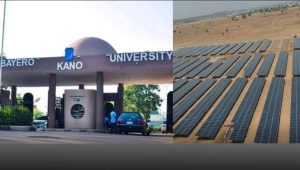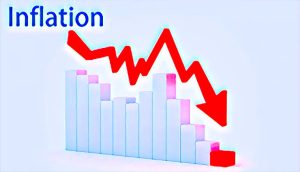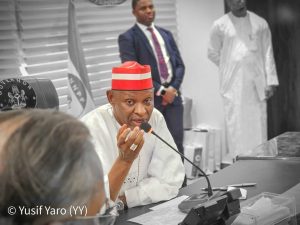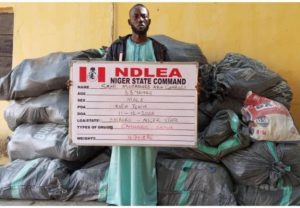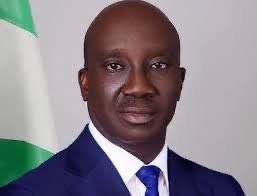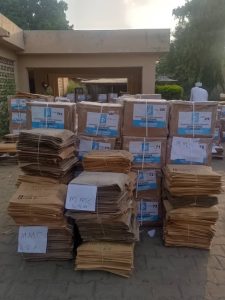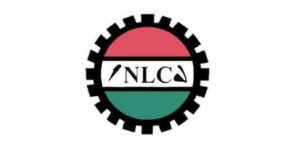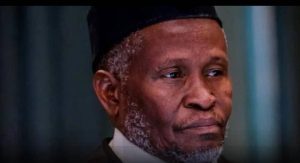By Tosin Adesile (Ogun) Damilare Adeleye & Ikugbadi Oluwasegun(Lagos)
Nigerians have expressed discomfort over the unprecedented hike in Premium Motor Spirit (PMS), otherwise known as petrol. This hike has affected a lot of people’s livelihood, petrol is a very essential commodity in the country, and it affects everyone directly or indirectly.
Many people power their homes, businesses and other essential amenities on fuel, thus the current increase has reduced many people’s earning and purchasing power a lot.
Before now, Nigerians have been struggling to live a basic life as they struggle to afford basic needs, now the situation has only gotten worse, you only need to see the increase in the rate of begging both offline and online to realize that Nigerians are not having it easy at all. Inflation has reduced many household incomes. With meagre hard-earned money, many are chasing a few goods that may not last them for the month and this poses a lot of danger to the economy.
It could be recalled that the price of petrol astronomically increased following President Bola Ahmed Tinubu’s declaration, on May 29, during his inaugural presidential speech, that “fuel subsidy is gone.”
The attendant effect of the removal immediately led to a scarcity of the product, which had made Labour Unions including the National Labour Congress threaten to stage nationwide protests. Though the protest was shelved, yet talks between the federal government and labour leaders are still ongoing.
While many considered the development as harsh and inconsiderate, the government had however, argued that subsidy could no longer be sustainable in the country as the previous administration did not make provision for it in the 2023 budget.
Even though major leading presidential candidates during the build-up to the 2023 polls campaigned for the removal of fuel subsidies, the Tinubu new government has been slammed for being too quick to remove it considering that there were no palliative provisions put in place to mitigate the effects on the masses.
Sometimes in February 2023, the Chief Executive Officer of the Nigerian National Petroleum Company Limited (NNPCL), Mele Kyari, announced that the country was spending over N400 billion monthly on petroleum subsidies. This has made the country continue serving debts worth trillions of naira.
When our reporters took to the street to ask about the adverse implications of the fuel subsidy removal on their businesses, it was learnt that there is a high cost of living among them due to an increase in the price of transportation which has a ripple effect on the prices of all other goods and services.
Emmanuel Kolawole, a university student in Lagos State, lamented the situation, saying that his everyday transportation has increased almost by 100%.
“I now sometimes stay with my friends who stay around the university just to cut down my transportation allowance,” he said.
Also, Ify Chukwuma, a student at one of the higher institutions in Lagos described the development as a hard situation.
“As a student, the increase has affected me so much. Like from my school to my house I was taking N300 for one trip. But now, if you don’t have up to 500 you may find it hard to get to school. For Monday to Thursday, I spent 4000 on transportation every week,” he stated
Mr Samuel Freeborn, a motorcycle rider in the First Gate area of Ojo Local Government, decried low patronage of his service as well as the profit he was now making.
According to him, “We used to carry two passengers from here to Igando at N500 when we used to buy fuel N185. Now, we’re buying fuel for N500 (per litre) and at that the same price which we used to carry people before still in activation. We didn’t increase the price. It is not easy for anybody. When we increased the price, we didn’t see passengers. That is why we returned the price to the former. It is we transporters and passengers that have adversely been affected since the increase. When I used to buy N1000 petrol, I sometimes make N5000 out of it. But now, I make N3000 highest.”
Joshua Olanipekun, a tricycle rider in the First Gate area, while speaking on the effects on his business, urged the government to fast-track processes of bringing relief to the masses.
He said, “This thing is actually affecting us. Because before we were buying fuel at N200 per litre, we were charging N100 for our area here. But now that fuel is increased to N500, we try to increase our money to N150. At first, the thing worked. But after two or three weeks, people were not entering KEKE any more. Some people that can use KEKE for short distances before now, they’re trekking. Before within one hour, you can go for two to three trips, now we are waiting for two hours before you can go for three trips. The thing is affecting us. Even though the price increased to 150 before, we have decreased it to 100 because people were not using our services. My suggestion is what the government has in mind before they increased the price of fuel and removed subsidy, I think they should be fast in the approach to bring relief.”
Suilamoh Kazeem, a commercial mini bus (Korope) driver, said he used an average of #2500 naira fuel to work in the evening before the removal of the fuel subsidy, but now using an average of #6500 naira fuel daily as a result.
“We used to carry people for #150 before the subsidy removal. Now, we are carrying it for #200. The new price does not really reflect the current situation, yet passengers are not willing to adjust to the effect that comes with fuel subsidy,” he was quoted as saying.
He said he needed to work extra hours to cover money for fuel and get something to take home to feed his family.
Mr Kazeem added that recently his wife called him and said he has changed because he now closes late from work due to the subsidy removal. He has tried to explain to his wife the effect of the subsidy removal on his business, but the wife still finds it difficult to understand the situation.
Also, Mr Olaotan David, a block manufacturer said the removal of the fuel subsidy has affected his profit as expenses have increased while the selling price has not increased. He said customers don’t care about the new price of subsidy, so he bears all the cost alone.
Mr Olaotan uses petrol to power the machine he uses to manufacture the blocks, in his words, “and those helping us convey the blocks to sites have increased the transportation cost because of the subsidy removal, the price of cement has also gone up. I still sell blocks at old prices to get something to feed my family despite the fact that the subsidy removal has affected my profit,” he said.
Ege Gbenga, a male barber in the Igando area, said the removal of the subsidy has shaken his business.

He stated, “Before I worked and had little change but now, It is fuel that is taking all my money. I now use fuel of N2500-N3000 on a daily basis. Customers keep lamenting that there is no money whenever I tell them that I have reviewed my price. Electricity supply is worse in this area, and it is really affecting my business. I am considering packing up my big generator and reverting back to the small tiger generator in order to reduce the cost of fuel consumption.”
Fuel is currently been dispensed at different prices across the nation. In Ondo, most filling station dispenses fuel for 510 and above while in Osun State, it is between 505 and 520 naira, the same thing happens in Abeokuta, Ogun State except for a few filling stations that sold for 500 naira.
In Lagos Nigeria, many had changed their price from 480 and above to 500 naira leaving consumers with no choice but to buy.
As Nigerians continue to groan due to various hardships, the Federal Government needs to first cut the high cost of maintaining the flamboyant lifestyle of politicians and find alternative ways to cushion the hardship on the masses. A pay rise and support for small business won’t be a bad idea as we continue to look forward to a better life.






